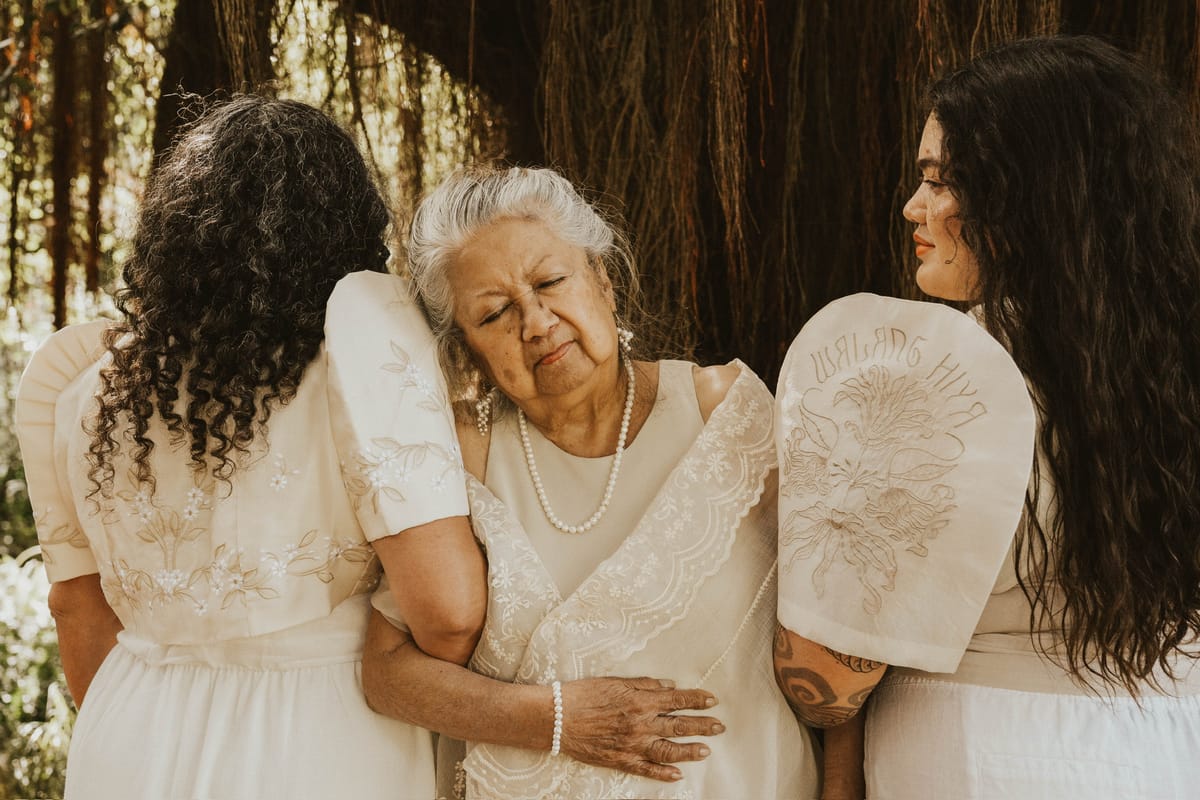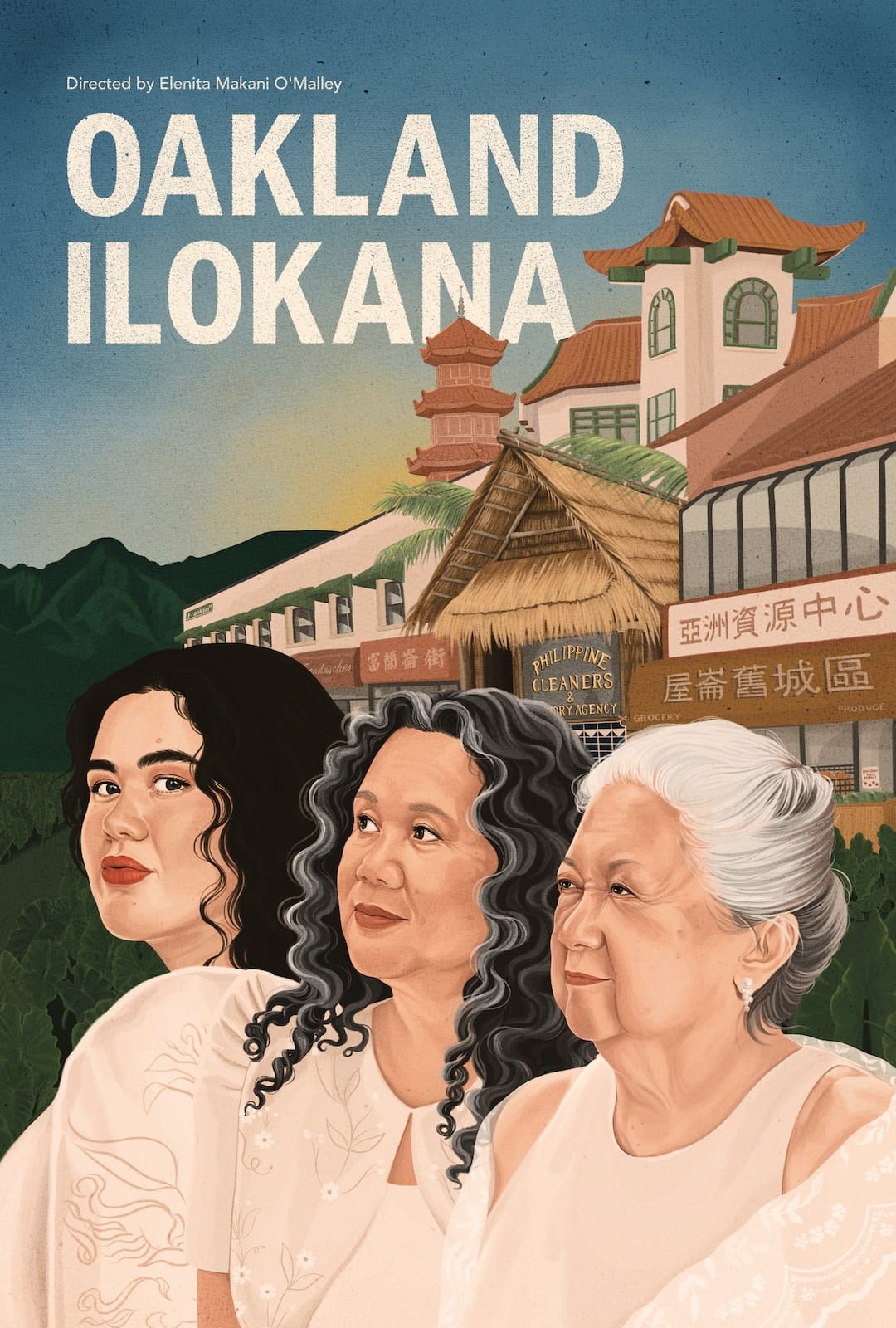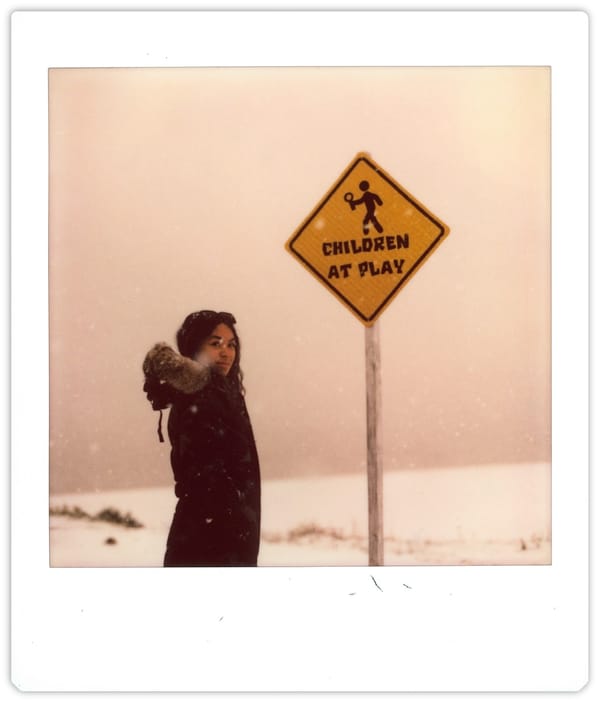‘Oakland Ilokana’ is a tribute to family, heritage and forgotten Filipina Americans
Elenita Makani O'Malley's debut film is an intergenerational journey that centers on a perspective often overlooked in Filipino American history.

A grandmother sits in a living room, her hands folded on her lap. A piano adorned with family photos serves as a backdrop to an Instagram video. She looks into the camera and calls for attention. “Hi,” she says in a breathy tone. “I’m Marie Veronica Mendoza Rivera Yip. I was born in the Bay Area, so let’s talk stories together.”
Yip, or Lola Marie, is the grandmother of Elenita Makani O’Malley, whose first documentary film chronicles a Filipino American story for the ages, or at least three generations.
“It’s about ‘Oakland Ilokana,’ which is me,” Yip closes the video.
O’Malley has had a passion for storytelling for most of her life. As a child, she says she was drawn to literature filled with fantasy, fairy tales, myths and legends.
“My mom always loves to tell the story of how I looked at her when I was just 2 years old and yelled, ‘I want to read!’” she said.
By trade, O’Malley is a digital communicator, creating immersive experiences showcasing new scientific tools and research addressing complex world challenges. She also trained as an anthropologist, honing her ability to tell stories with cultural sensitivity.
“Now that I’m working on my first documentary, I’m finally diving into stories that are really close to my own identity and heritage,” O’Malley said.
O’Malley is of mixed Filipino and Irish American heritage. She traces her Filipino roots to the Ilokano people — an ethnolinguistic group from the northwestern region of the Philippines.
“‘Oakland Ilokana’ is a love letter to my family, our multicultural Filipino heritage and our deep roots in the East Bay,” O’Malley said.
Lola Marie is among the first Filipino Americans born and raised outside of the Philippines in the Bay Area. Much of the recorded history around the earliest Filipino Americans focuses on laborers who were predominantly men. Although they were outnumbered, Filipino women were also in the U.S. during this period, forming the fabric of Filipino American life across the West Coast and other parts of the country.
“By focusing on Lola's story and the experiences of the women in my family, the film explores how Ilokana identity has been sometimes preserved, sometimes misplaced, and always transformed over the course of a century,” O’Malley said.
As she interviewed her grandmother, O’Malley began to see parallels in her own experiences — and vast differences. The Bay Area is widely known for its large Filipino American population and the influence of the community across sectors. But in Lola Marie’s days, that was far from the reality.
“She experienced a level of cultural loneliness that I can’t even relate to, having grown up Filipino in the Bay Area in the ‘90s,” O’Malley said. “Her life spans nearly a century of Filipino American history, and I realized her story needed to be documented.”

O’Malley says framing the documentary through an intergenerational lens came naturally. While she explored her grandmother’s life, she invited her mother to join the project, blending their perspectives to connect with Lola Marie and their family history. And, O’Malley says, a number of events significant to Filipino American history had an enduring impact on her family.
In particular, Lola Marie was born in 1934, the same year the U.S. Congress enacted the Tydings-McDuffie Act, also known as the Philippine Independence Act. Among its provisions, the act reclassified Filipinos as “aliens.” Before the act, Filipinos were considered U.S. nationals and were free to migrate to the United States without being subject to immigration quotas that were imposed on other groups.
“For those already living here, it meant they were cut off from going back to the Philippines because they wouldn’t be allowed to return to the U.S.,” O’Malley said. “So, from the moment my Lola was born, she was already cut off from her ancestral homeland. This reclassification had a huge impact on my family, leading to feelings of displacement and forced assimilation. Learning about these connections has really deepened my understanding of how history has shaped our identity.”
Along with uplifting underrepresented voices of history, O’Malley made a creative decision to set the film in Oakland Chinatown and Hawai’i — two places integral to her family history. Oakland Chinatown is where Lola Marie was raised, and Hawai’i is where O’Malley’s Filipino ancestors, much like other Filipino workers who ended up in California, began their journey to the U.S.
“I often think about the idea of ‘displacement’ and how living in the diaspora can make you feel lost and lonely. But by grounding our film in these locations, I found a lot more belonging than I ever expected,” O’Malley said.
Making the film, O’Malley says, has allowed her to reclaim parts of her identity lost because of assimilation and deepened her bonds with her family, culture and ancestors. She hopes “Oakland Ilokana” provides viewers with a more inclusive view of the Filipino American experience and that the film inspires others to learn the stories within their family history.
O'Malley plans to premiere "Oakland Ilokana" later this year, with a national tour in the works. The film will screen in the Bay Area on Oct. 4 at the Oakland Asian Cultural Center and on Dec. 13 at the San Leandro Public Library. To receive updates about screenings in your area and to find ways to support the film, visit the "Oakland Ilokana" website and follow Elenita Makani O’Malley on Instagram.
Editor's note: This story has been updated with information about film screenings.





